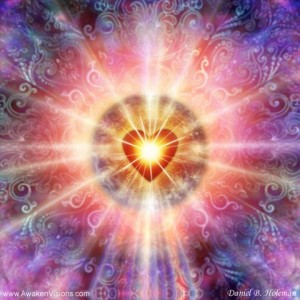As I drove to the Moksha Yoga Studio on a recent morning, I was thinking about writing a blog post about a somewhat obscure topic called ‘bodhichitta,’ which was to be the theme of my meditation class at the studio. I was hedging a bit because there wasn’t any obvious synchronicity related to the subject. Then, on NPR, a story came on about an artist who was working with Moksha Art Collective.
What were the chances that as I headed to one Moksha, another one would be mentioned on the radio. (Moksha is a Sanskrit term that means enlightenment and liberation.) So that little synchro impelled me ahead to address this other Sanskrit term, the topic of the post.
So what is bodhichitta?
The word, pronounced BODI-CHITTA, translates to ‘awakened heart,’ but what does that mean? It’s hard to define precisely, but essentially it’s a meditation practice that aims at overcoming fears, suspicions, aggression and defensive posturing. By practicing bodhichitta, you become exposed and vulnerable. But you also become a spiritual warrior, one who aims to change the world through inner transformation.
So what do you do to become a spiritual warrior?
You remove your mask, drop your shield, pull down the protective walls made of opinions, prejudices, barriers built on a fear of being hurt. You face the world with an open heart. It’s not a cozy, comfortable experience, but one with high potential.
“These walls are further fortified by emotions of all kinds: anger, craving, indifference, jealousy and envy, arrogance and pride,” writes Pema Chodron, author of Bodhichitta: The Excellence of Awakened Heart. “But fortunately for us, the soft spot—our innate ability to love and to care about things—is like a crack in these walls we erect. It’s a natural opening in the barriers we create when we’re afraid. With practice we can learn to find this opening. We can learn to seize that vulnerable moment—love, gratitude, loneliness, embarrassment, inadequacy—to awaken bodhichitta.”
According to Chodron, we all have the possibility of pursuing bodhichitta. Even the toughest, meanest person on Earth has a soft spot, a feeling of tenderness and open-heartedness toward something – though it might be a double cheeseburger. In essence, an open heart is considered the most important tool for creating a better world, and overcoming the common theme that what’s wrong with the world is the ‘other guy’s fault.’
But what if we take personal responsibility and change ourselves? As more and more people practice mindfulness and focus on the meaning of an open or an awakened heart, on compassion, we move toward an enlightened society, one where cooperation is more valued than aggression or defensive posturing.
Numerous scientific studies have shown the value of meditation, how it can help you relax and become more in control of your life, and improve your health and well being. Now I would like to see a study showing that meditation can change the world.
Oh, and how did my meditation go? Did we change the world? Nope. On that day, for whatever reason, no one showed up for class. Maybe that was one of those trickster synchronicities. You think people are ready to change the world by opening their hearts? Well, think again. Or, maybe, You think you can teach bodhichitta? You better open up your own heart first.
Maybe so. But I will try again, and maybe when the teacher is ready, the students will show up.
+++
Happy Friday the 13th! May good luck and synchronicity be yours!









PS: This post reminded me of the fabulous film “Doing Time, Doing Vipassana” – in which, working with prisoners in India, they clearly demonstrate that meditation can, indeed, change the world. If you haven’t seen it, you might enjoy it:
https://youtu.be/WkxSyv5R1sg
Thanks, Lauren, we’ll take a look!
I remember years ago reading that, of all the emotions, it is fear causes us the most suffering. In saying that though the idea of making ourselves ” exposed and vulnerable” sounds scary (and maybe dangerous?) Are we not then at the mercy of any nearby influence, good or bad? This seems to be somewhat different to having n open heart.
Interesting! Haven’t heard of bodhichitta previously.
Love Pema Chodron. Her book – The Places That Scare You – was a good one. I think we are right on the precipice of this information gaining traction on a large scale – but alas, that pendulum still has a way to to before it starts to head back in the other direction, I fear. It will probably get much worse before it gets better.
A book you’ll love if you haven’t read it already: You are the placebo:making your mind matter.
Joe Dispenza? Yes, I heard him speak on this subject in Vancouver last month. Amazing, the power of the mind!
Lucky you!
the books that get clinical,,, that say something,, Roderick’s and one I let’s see if memory serves (been a long time since) Langston?????
just wonderin there T+R you guys order up the Roderick read,, put that together with the Big Blue Book covers a heck of lot of ground…..
Not sure what you’re referring to!
That sounds ideal, but I fear it to be unrealistic…
Maybe…but maybe not!
Well said. An open heart is a rare moment for most of us, myself included. But those moments are treasured, and perhaps I’ve become old enough to realize those moments come closest to the truth of things. Lately the words “empathy is the next evolutionary step for humanity” have been floating around me, and although I don’t really understand what it means, I think it’s true. To really feel connected to everything else, and to “feel what you do”, and thus experience conscious relationship, really does feel like what might save us from extinction. It’s not an intellectual evolution – it’s a heart evolution.
And thanks for the good wishes – Friday the 13th, and a full honey moon – auspicious for pagan hearts.